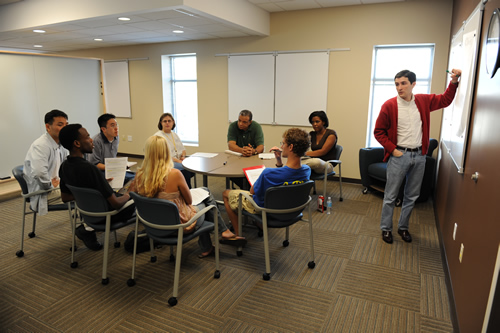Junior Faculty Teaching Fellows
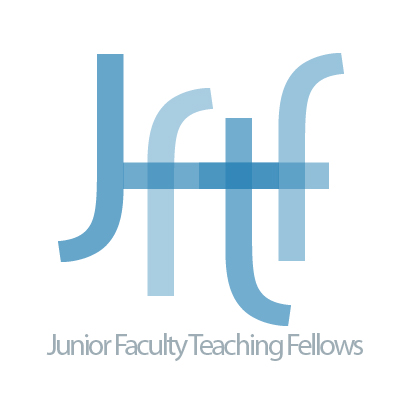 |
Overview
The Center for Teaching’s Junior Faculty Teaching Fellows program offers multiple opportunities for fellows to enhance their teaching and be active members of a teaching community at Vanderbilt.
- Fellows engage in a structured set of professional development activities designed to help them refine their teaching skills and learn to teach more efficiently. They engage in these activities as part of a community of teachers, including past Junior Faculty Teaching Fellows, senior faculty mentors and CFT senior staff.
- Fellows will also receive $2000 in research funds each to be used to enhance their teaching. Funds may be used in various ways to enhance teaching at Vanderbilt, including purchasing books, materials (such as case studies or lab equipment), or educational technology; traveling to conferences that address teaching; supporting speakers or external collaborators; or supporting graduate or undergraduate assistants for course development.
- JFTF funds must be used within 24 months after they are awarded.
- Utilization of funds in the established timeline is expected. If all funds are not used by the award deadline, recipients must return the remaining funds.
“New faculty typically over-prepared lectures, taught defensively so as to avoid public criticism, and had few plans to improve their teaching.”
—Robert Boice, The New Faculty Member
Program Activities
Fellows engage in a variety of program activities sequenced to develop and refine their teaching skills over the course of the year. These activities will help fellows learn to make more effective and efficient use of time they spend designing courses, planning lessons, and reflecting and writing about their teaching.
- Seminar on Teaching and Learning—Each semester, half of the fellows participate in a six-session seminar that has two purposes. First, it is dedicated to exploring important dimensions of the scholarship on teaching and learning to inform fellows’ development as scholar-teachers. Second, it involves practical work to (re)design a course or course elements that the fellows will teach in the near future.
- Individual Consultations—Fellows meet regularly with CFT teaching consultants to reflect on their teaching. The first consultation provides an opportunity to design a customized development plan, which can include consultations around course design, classroom observations, student evaluations, mid-semester Small Group Analyses, teaching statements, or other topics related to teaching. A full list of consulting services is available here.
- Teaching Visits—Fellows visit the classrooms of both senior faculty and other fellows to observe them teach, meeting afterwards to discuss their teaching choices. These visits are not intended to be critiques of the host’s teaching but instead offer are opportunities for the Fellows to reflect on their own teaching choices.
- Dinner Discussions—Fellows will meet over dinner twice a semester to share experiences with each other and with more senior faculty mentors on subjects including teaching as scholarship, how to teach for successful reappointment and tenure, connecting research to teaching, and developing academic leadership. Please note that dinner plans may be modified in light of COVID-19 conditions.
- Dinner Reflection—At the end of the year, fellows have a chance to reflect on their growth as a teacher with CFT staff and colleagues in the program.
Together these events require a time commitment of approximately forty hours, including time for preparation.
“My CFT consultation reinforced the things that were going well and provided suggestions for improvement. Students recognized and appreciated the modifications for the second half of class.”
—Assistant Professor, Social Sciences
Why Participate?
Research by Robert Boice (Advice for New Faculty, 2000) and others indicates that junior faculty often find teaching the most challenging and time-consuming part of their jobs. Engaging in a structured set of professional development activities will help you become what Boice calls a “quick starter” in your faculty career.
The Junior Faculty Teaching Fellows program is designed to help you:
- Build understanding of principles of learning to inform your teaching
- Stock your teaching toolkit with new skills and approaches
- Develop a framework for course design
- Build teaching community
A 2006 survey of Vanderbilt faculty indicated that more than a third of tenure-track faculty spend more than 40% of their work time on teaching.
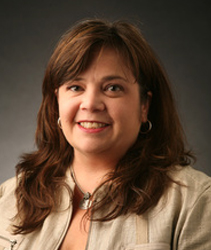 “The JFTF is as energizing and edifying as it is useful to the always already unstable world of untenured faculty members, particularly as an open space for contemplation—for listening, learning, applying, and experimenting…. The JFTF gives us the reason and motivation to set aside time to think together… not just to think about, but to think with one another about our teaching goals at Vanderbilt. The JFTF provides us with a model classroom to advance our own classroom experiences, to help us more effectively think with our students.” —Christin Essin, Associate Professor of Theatre History
“The JFTF is as energizing and edifying as it is useful to the always already unstable world of untenured faculty members, particularly as an open space for contemplation—for listening, learning, applying, and experimenting…. The JFTF gives us the reason and motivation to set aside time to think together… not just to think about, but to think with one another about our teaching goals at Vanderbilt. The JFTF provides us with a model classroom to advance our own classroom experiences, to help us more effectively think with our students.” —Christin Essin, Associate Professor of Theatre History
The program’s value is also indicated by the willingness of individual schools to supplement Provost funding to support additional fellows when merited. In 2021-2022, both Arts & Science and School of Nursing are providing additional support for the program.
“Vanderbilt is known for providing a world-class education to its st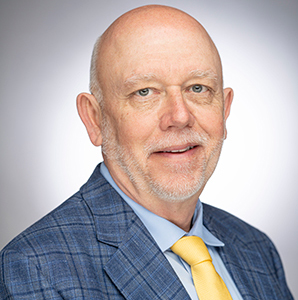 udents, and that is why we are so invested in supporting, developing, and training our junior faculty to be exceptional teachers. The Junior Faculty Teaching Fellows program is an incredible resource to help faculty improve their teaching and more effectively reach their students.” —John Geer, Dean of Arts & Science
udents, and that is why we are so invested in supporting, developing, and training our junior faculty to be exceptional teachers. The Junior Faculty Teaching Fellows program is an incredible resource to help faculty improve their teaching and more effectively reach their students.” —John Geer, Dean of Arts & Science
Eligibility
The Junior Faculty Teaching Fellowship is open to all full-time, VU-employed (Provost-reporting) and VUMC-employed faculty who have been at Vanderbilt between one and six years. We give preference to applicants without tenure, but exceptions are made. In alternate years, the School of Nursing supports a cohort of Nursing faculty, and VUSN faculty are encouraged to apply for this cohort. For more information, contact Stacey Johnson.
“We focus on evidence-based practice in the content that we teach, but I never 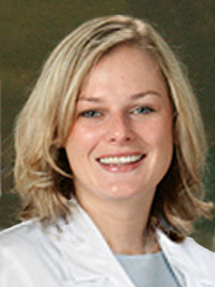 realized there was evidence for how we teach. Participating in JFTF introduced me to a whole new category of literature on teaching and learning. The fellowship gave me a group of colleagues who were also interested in exploring this subject [through] readings and helped me to brainstorm how to apply these readings to my teaching.” —Anna Richmond, School of Nursing
realized there was evidence for how we teach. Participating in JFTF introduced me to a whole new category of literature on teaching and learning. The fellowship gave me a group of colleagues who were also interested in exploring this subject [through] readings and helped me to brainstorm how to apply these readings to my teaching.” —Anna Richmond, School of Nursing
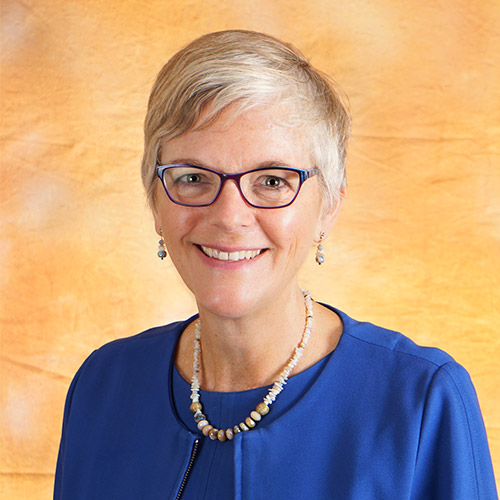 “The JFTF program provides an opportunity for select faculty members to network, stretch their teaching goals, and explore best practices in teaching. Each JFTF participant has made great strides in professional teaching growth. Concurrently, the investment in faculty teaching is ultimately an investment in our students. It is a “no brainer” to continue to support the program.” —Mavis Schorn, School of Nursing.
“The JFTF program provides an opportunity for select faculty members to network, stretch their teaching goals, and explore best practices in teaching. Each JFTF participant has made great strides in professional teaching growth. Concurrently, the investment in faculty teaching is ultimately an investment in our students. It is a “no brainer” to continue to support the program.” —Mavis Schorn, School of Nursing.
Application Process
Applicants should submit the following items through the submission form below.
- Application Letter – A letter describing how participation in the program will support the applicant’s growth as a teacher. This letter should describe the applicant’s past teaching experiences and identify the applicant’s strengths as a teacher and areas for future improvement. The letter should also include a description of a course to be designed (or redesigned) during the applicant’s year in the program, as well as ideas for using the $2000 in funds provided by the program. Potential uses include books on university teaching, educational technology purchases, research assistants for course design work, and funds for traveling to teaching conferences.
- Teaching Statement – A brief statement of teaching philosophy that reflects the applicant’s current approaches to teaching. This document need not be as refined as one used for tenure and promotion, but should communicate the applicant’s perspectives on teaching and methods of enhancing student learning.
- Letter of Support – A letter of support from the applicant’s department chair (or dean for applicants from schools without departments). This letter should indicate the chair’s (or dean’s) approval of the applicant investing the time required by this program as well as any measures that the deparment will take to complement the support provided by the program.
- Curriculum Vita – The applicant’s CV should be submitted as well.
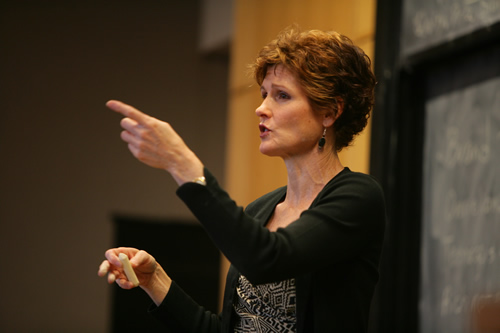 Since the CFT promotes teaching as an ongoing and collaborative process of inquiry, experimentation, and reflection, applicants will be selected primarily on the basis of how participation in this program will benefit their individual professional development trajectories. The current quality of applicants’ teaching skills is less important than their interest in developing those skills through this program. Preferences will be given to those applicants who have prospects for long-term impact on Vanderbilt students and the broader Vanderbilt community.
Since the CFT promotes teaching as an ongoing and collaborative process of inquiry, experimentation, and reflection, applicants will be selected primarily on the basis of how participation in this program will benefit their individual professional development trajectories. The current quality of applicants’ teaching skills is less important than their interest in developing those skills through this program. Preferences will be given to those applicants who have prospects for long-term impact on Vanderbilt students and the broader Vanderbilt community.
The selection process for the Junior Faculty Teaching Fellows program is confidential, and selection decisions will be made by the Junior Faculty Teaching Fellows Committee described below.
Application Form
The JFTF program will take a hiatus in 2023-24 as the CFT constructs a new program for first-year faculty. The JFTF program will return in a new form in future academic years.
Junior Faculty Teaching Fellows Committee
A standing committee is charged with reviewing applications for the program and with advising on program development. Normally, the committee includes, at a minimum, :
- Stacey Johnson, Assistant Director of the Center for Teaching and Senior Lecturer in Spanish (chair)
- Joe Bandy, Interim Director of the Center for Teaching and Principal Senior Lecturer of Sociology
- Jermaine Soto, Director of Faculty Development
- Tracey George, Vice Provost for Faculty Affairs (ex officio)
For More Information
Questions about the program or the application process? Contact Stacey Johnson, Assistant Director, Center for Teaching.
